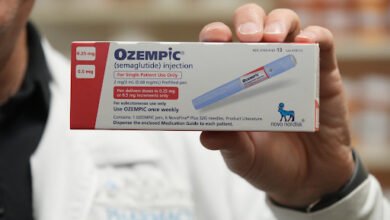Holiday Air Travel: How to Avoid Getting Sick

Air travel is one more thing that can add to holiday stress. But, come on, let’s try and start with a mindset not of dread and pessimism, but excitement. You get to soar through the air like Santa in his sleigh, minus the reindeer — arriving in hours, not days. Plus, there are beverages, pretzels and movies. I still get excited by air travel in these amazing high-tech machines with excellent safety records!
Don’t be a Scrooge about air travel. Embrace it! How lucky are we? Our ancestors took boats, horses and covered wagon trips that lasted for months. Everyone can deal with a few hours. Feel better?
Having said that, the fear of being exposed to Covid-19 is stressful for a lot of people. But the airplane cabin may be healthier than you think: Most planes use high efficiency particulate air filters (HEPA) that remove more than 99% of small particles, including viruses and bacteria that can make you sick. And simple preventive measures like wearing a face mask can help protect you from Covid.
Here’s more on what you can do to make the most of your trip and prevent some of the issues that arise when you’re packed into a plane with crying babies and strangers this holiday season.
Plan Ahead
Start drinking plenty of water the day before. Air travel is very drying because the humidity in the aircraft is low — 10% to 20%— rather than the 30% to 65% that most people find comfortable. In this dry environment, moisture evaporates rapidly from your body, which can lead to dehydration. This includes your throat and nose, where the fine cilia fibers have a harder time sweeping out viruses and bacteria, making you more likely to contract a respiratory illness.
Bring your empty water bottle for an airport fill-up and pack your carry-on bag with healthy snacks like veggies, trail mix or protein bars so you’re not tempted to purchase snacks from the in-flight menu.
Other helpful items to pack ahead of time include:
- Disinfectant wipes
- Face masks
- Hand sanitizer
- Facial tissues
- Cough drops
- Gum (chewing helps equalize inner ear pressure; a pacifier works for babies and toddlers)
- Earplugs or earphones
- Blanket, travel pillow, eye mask
- Noise-canceling headphones
Remember to avoid touching your eyes, nose or mouth while traveling because this is how germs get from your hands into your system. Use alcohol wipes or hand sanitizer with at least 60% alcohol
to help protect against Covid and other viruses.
Prevent Deep Vein Thrombosis
Flying can put you at a greater risk for developing deep vein thrombosis (DVT) because you are sitting with knees bent for a long time. DVT occurs when a blood clot forms in the deep leg veins. It can become very dangerous if the clot breaks off and moves through the bloodstream causing an embolism.
The risk is relatively low (higher if you have varicose veins), but everyone should be aware of a few simple precautions: no tight stockings or body shapers, bend and straighten your ankles and knees frequently, rotate your ankles and flex your feet, stand and walk the aisle if possible to improve your circulation. Hang out near the tail end of the plane, walking in place for 5 to 10 minutes if there’s no turbulence. Movement helps your circulation.
Flying also makes your blood pressure go up. If you’re on hypertension medication, make sure you take it as directed before flying. Go easy on the salty snacks and avoid alcohol.
Avoid Jet Lag
Though most of us don’t have the flexibility to do this, slowly changing the time that you go to sleep and when you wake up in the weeks before your travel can move your sleep pattern closer to that of your destination, making adjusting to a new time zone much easier.
Another strategy is to get outside as soon as possible. Your internal clock reacts to sunlight. Going out for a brisk walk in the sunshine upon arrival will help your body adjust.
If there’s no sunshine, exercising at a gym, taking a yoga class or going for a swim can help you adjust.
Limit Caffeine
Coffee, espresso, and caffeinated teas and sodas may help keep you awake and able to join the party for a while longer, but beware of overdoing it. Too much caffeine can keep you awake just when your body desperately needs sleep to recover. Consider a two-hour nap instead. It’s just enough to keep you up a little later, helping you get closer to syncing up with the new time zone.
Adjust With Melatonin
Melatonin is a hormone made by the pineal gland in our brain, helping to control our daily sleep-wake cycles. Our circadian rhythm (our internal sleep/wake clock) influences how much melatonin your body makes, as does the amount of light exposure we get.
Melatonin levels start to rise in the evening and stay elevated for most of the night while we’re in the dark. Then, they drop in the early morning with exposure to daylight, helping to wake us.
As a treatment for jet lag and/or insomnia, melatonin can be effective for some people.
The right timing and dosage is important. Be sure to check with your healthcare provider (HCP) to find out the best way for you to use it.
I hope you have a healthy and happy holiday and safe travels!
A version of this blog originally appeared on Nurse Barb. Barb Dehn is a women’s health nurse practitioner, award-winning author and nationally recognized health expert. She practices with El Camino Women’s Medical Group in the San Francisco Bay Area California.
From Your Site Articles
Related Articles Around the Web
Source link
#Holiday #Air #Travel #Avoid #Sick



